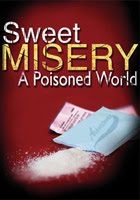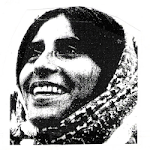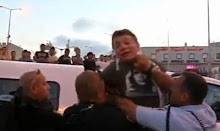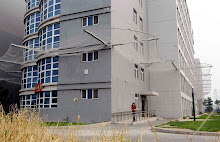| Reporting Michele Gillen |
Ion Sancho is a man on a mission. Just weeks from the presidential election, one of the most veteran election supervisors in the state of Florida, thinks there’s plenty for him and his colleagues to lose sleep over.
What keeps him awake at night? Whether you can trust the machine you will be voting on.
“We still have not secured the process to ensure that that machine has read that ballot correctly and it is 100 percent accurate. Because it is wrong to assume that the machines are always right. They’re not, ”
Sancho tells CBS4 Chief Investigator Michele Gillen.
“I think the citizens should be screaming from the rooftops,” he punctuates with the candor and directness he is known for.
For many voters Sancho’s words hold weight. He was the first elections supervisor in America to dare a “look under the hood” of a voting machine, to see if the machines were recording votes properly and if they could be hacked.
” I sanctioned the first investigation of a voting system without the vendor’s authorization,” Sancho recalls.
The year was 2005. Sancho’s county was already using an optical scan machine that reads paper ballots, the technology thought by many to be the most secure. He authorized two world renowned computer scientists to attempt to penetrate his system.
“I told them I want you to crack my system I want you to steal an election if you can do it,.” he explained to Gillen .
The attempts to “hack” were recorded and featured in the HBO documentary “Hacking Democracy.”
What he and the team learned, Sancho says, is that if someone had access to a memory card they could potentially manipulate votes and alter the outcome of an election.
“And this was shocking to us,” recounts Sancho.
The manufacturer disputed the results and so did the state of Florida which he says wanted to fire him.
Meanwhile, as the public’s demand for a paper trail and paper ballots grew, every Florida county ultimately ended up with optical scan machines made by a handful of companies.
Sancho says worrisome computer vote tabulation problems appear to be emerging for various manufacturers.
For example, in 2008, pre-election testing in Oakland County, Michigan, optical scanners repeatedly gave different results for the same paper ballots.
In 2010, 10 percent of Cleveland Ohio’s pre-election testing found machines failing.
And just this year, in New York, it’s been discovered that a precinct scanner in the Bronx allegedly overheated and failed to count 70% of the votes in that machine, during the 2010 primary election.
“After two hours the machines got hot and they started mis-recording votes from the voters,” Sancho explained to Gillen.
Industry experts confirm to CBS4 Investigates that that Bronx optical scanner is the scanner used in Miami-Dade, Broward and 15 other Florida counties… although records indicate that they all use different software.
In an e-mail to CBS4 News, the manufacturer reported that the issue in the Bronx was with a single unit and indicated that if the proper machine maintenance is followed “it is not anticipated that this issue will occur in NYC or elsewhere.”
The problem was confirmed in the Bronx only after a hand recount of the paper ballots which was triggered by suspicions of independent voting observers that there may have been a voting pattern of over votes in the precinct that was problematic.
In Florida, the law only allows election supervisors to hand count a minuscule sample of ballots and only after the election is certified. It’s called an audit.
Gillen asked Sancho about Florida’s practice of conducting audits. “As far as the auditing process in the state of Florida goes, if you had to give it a grade, what would it be?” “F.F.F. The current audit that is done in the State of Florida is not scientifically valid. It does not test a wide enough number of ballots or machines or races,” responds Sancho.
After more than two decades, for Sancho, the hunt for errors and answers continues.
“I still love elections,” he told Gillen, “but we need to make improvements to insure that every legal voter will have their vote counted.”
That sentiment is echoed by other Florida election supervisors we’ve met with.
We will be bringing you their stories, questions and concerns in these days leading up to a presidential election in which Florida, once again, is expected to play a pivotal role.
At the end of the day, most of them say they are uncomfortable that they must rely so heavily on the machine’s manufacturers for answers as to what’s working…. and potentially not working… in their voting systems.
We’ll be taking a close look at what you’ll be voting on here in Broward and Miami-Dade.
Unfortunately, the supervisor of elections for Miami-Dade has denied our request to sit down with us and discuss the machines that more than one-million registered voters will be using on November 6th.






























No comments:
Post a Comment